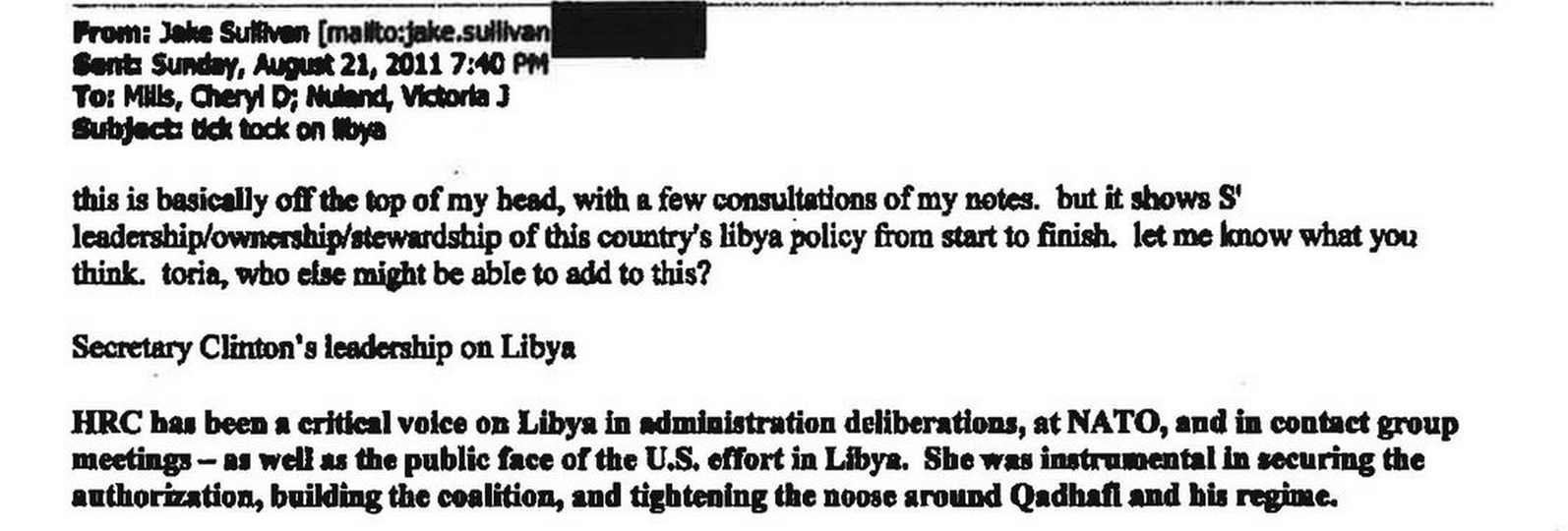Based on the Benghazi e-mails released last month by the New York Times, a top foreign policy adviser called Hillary Clinton “the public face of the U.S. effort in Libya” and said Clinton had the “leadership/ownership/stewardship of this country’s Libya policy”. Despite being heavily engaged in the process to end Gaddafi’s rule in Libya, Clinton ultimately failed to execute a strategy for a post-Gaddafi Libya. One democratic Congresswoman, Tulsi Gabbard, said Clinton and Obama had “no after plan, there was no plan on what happens next” in Libya.

Libya is now characterized as “a case study in the hazards of embarking on military action in political transitions without first devising a solid political strategy to deal with the aftermath” and a state where “Western governments who were eager to get Gaddafi out failed to help Libya stabilize after his death.”
Today, not only does Libya have two governments, but Islamic State and “other Islamist militant groups” also have a presence and are taking advantage of “the turmoil in Libya”.